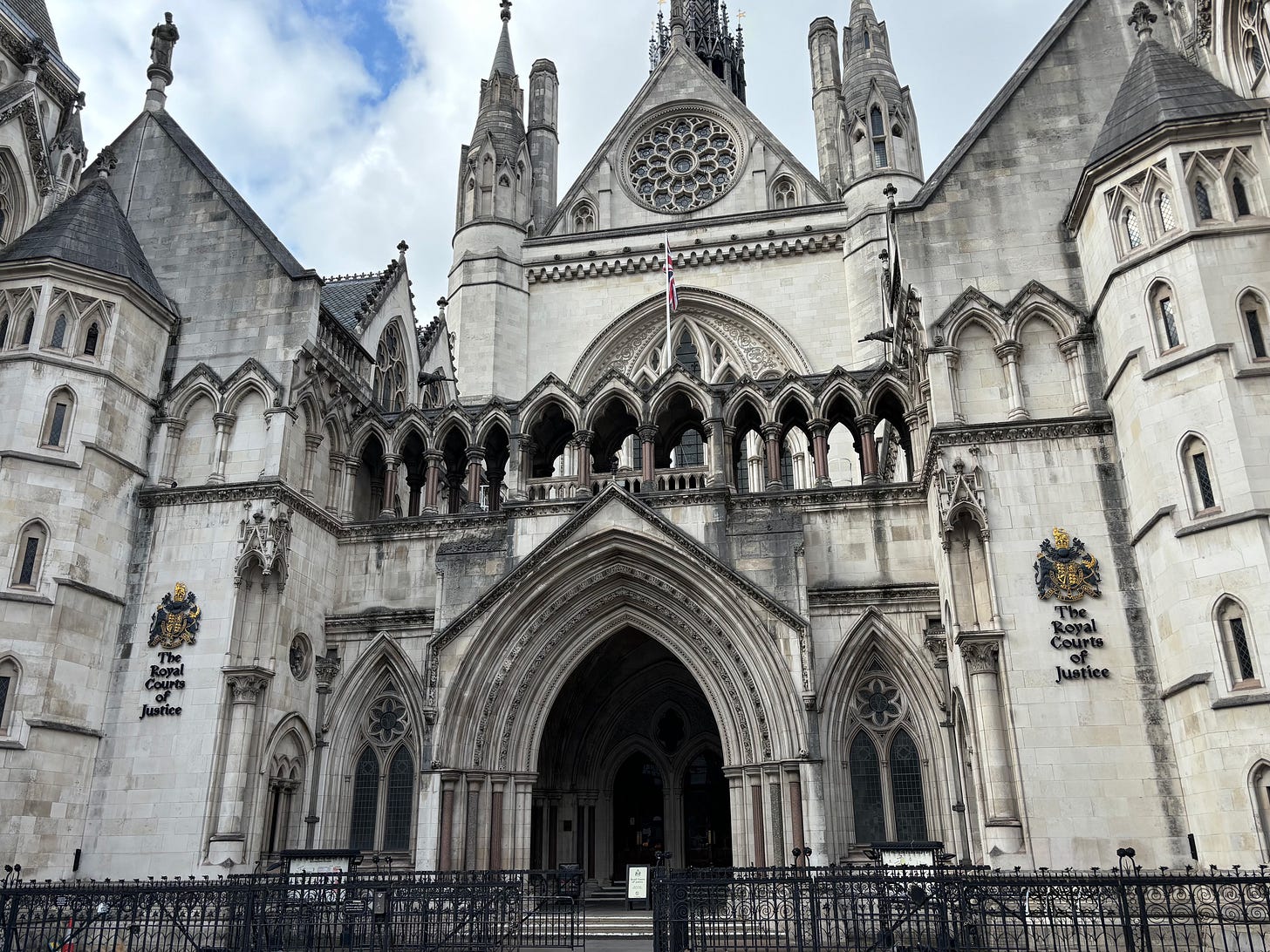The senior judge at an unnamed Crown Court centre was wrong to refuse an adjournment when no counsel could be found to prosecute a man accused of raping his wife, the Court of Appeal has ruled.
Appeal judges accepted that further delay was highly undesirable. But they regarded the alternative — that the trial might never take place — as worse.
Judgment was delivered last September by Lord Justice Holroyde, sitting with Mr Justice Nicklin and Mrs Justice Thornton. Their ruling was not published until recently, presumably so as not to prejudice the trial that the appeal judges had allowed to go ahead.
Holroyde said:
The circumstances provide, in our view, a stark illustration of the difficulties faced by the Crown Court at present. Judges and practitioners are working flat out in their efforts to deal with cases justly and as expeditiously as possible. We are acutely conscious of the consequent pressures on judges, barristers and solicitors. We applaud their individual and collective efforts, and we sympathise with the stress and personal difficulties which unhappily are sometimes suffered as a result.
We sympathise with the judge who, in his role as resident judge, had clearly striven to operate a system of listing which aimed to fix trial dates when the instructed advocates were available. It is entirely understandable that he was disappointed to find that difficulties had arisen in this case which had been avoided in other cases.
The allegations
All that can be reported is that the defendant faced three charges of raping his wife as well as an act of serious violence against her. In order to protect her anonymity, he was allocated the random initials BOD. He denied all the charges, some of which were alleged to have been committed several years ago.
His wife first complained to the police in April 2022. She recorded her evidence in August of that year and BOD was charged in October 2023. A trial was fixed to begin on 8 July 2024.
The adjournment
The Crown Prosecution Service had briefed a KC, acting without a junior barrister. On 2 July, the KC concluded that she could no longer appear for the prosecution because the murder trial in which she had been prosecuting was overrunning. Attempts to find a replacement failed even though some 60 sets of chambers were contacted.
On 9 July, the KC applied for an adjournment. The judge adjourned the application until the following morning in order to see what could be done. Matters then became a little complicated. The KC sent an email to the judge, explaining the position and mentioning some personal matters. At that stage, however, the judge chose not to read the email in detail.
A day later, the judge refused the adjournment and made some critical comments about the KC. He was then asked to read her email. Once he had done so, he unhesitatingly withdrew the criticisms he had made.
On 11 July, the judge again refused an adjournment. Prosecutors appealed to the Court of Appeal. They said it was wrong in principle and unreasonable for the judge to have decided that the potential prejudice caused by an adjournment outweighed the prejudice caused by a ruling that left the prosecution with no alternative but to offer no evidence in a very serious case.
Offering no evidence would have brought the trial to an end with the defendant found not guilty.
In their ruling, the appeal judges said:
We can see the argument that, once that decision had been made, counsel’s chambers and the Crown Prosecution Service should not only have pursued their efforts to find another counsel but should also have informed the court at once of the potential difficulty. We can, however, also see the counter-argument that the court would not be assisted by a running commentary on possible changes of representation, at a stage when there was still reason to think that replacement counsel would be found…
We also see force in the submission of prosecution counsel that earlier notification of the need to change counsel could not and would not have made any material difference because the inescapable fact is that she was tied to the murder trial and no other counsel was available.
For those reasons, whilst we think that counsel’s chambers and/or the Crown Prosecution Service should have notified the court of the problem sooner than they did, we do not think that that was a serious failing in the circumstances of this case. In any event, as the judge rightly recognised, the decision whether to grant an adjournment is to be made on a consideration of the overall interests of justice and should not be based on a desire to punish a party for some default…
The charges against the defendant are very serious. Although they are denied, it is not suggested that they are not supported by evidence sufficient to bring the defendant to trial. The public interest in those allegations and the defendant’s response to them being considered by a jury is very strong.
With all respect to the judge, we cannot agree that it was in the interests of justice that the complainant’s allegations should never be heard, rather than that they should be heard after an unsatisfactory delay. We are not persuaded that the delay was, in reality, avoidable…
For those reasons, whilst we have no doubt that the judge was striving to do justice, we are satisfied that he fell into error of principle and that in the circumstances of this case his decision was not one which it was reasonable him for him to make.
The Court of Appeal ordered a fresh trial.
Reporting restrictions remain in force and so comments are disabled for this piece




